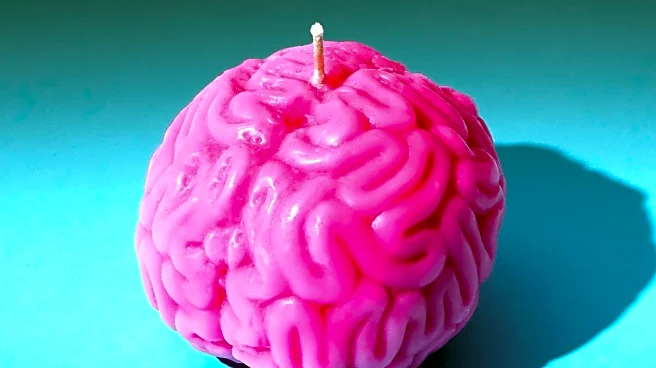What's Happening?
Research from UC Davis Health has found that individuals with anxiety disorders have lower levels of choline in their brains. The study, published in Molecular Psychiatry, analyzed data from 25 studies
comparing neurometabolite levels in people with and without anxiety disorders. Results showed an 8% lower choline level in those with anxiety, particularly in the prefrontal cortex, which is crucial for emotion and behavior regulation. This suggests that nutritional approaches, such as choline supplementation, could help restore brain chemistry and improve outcomes for anxiety patients.
Why It's Important?
Anxiety disorders affect approximately 30% of adults in the U.S., making them the most common mental illness. The discovery of a chemical pattern in the brain associated with anxiety disorders opens new avenues for treatment, potentially shifting focus towards nutritional interventions. Choline-rich foods could become a key component in managing anxiety, offering a non-pharmaceutical option that may enhance treatment efficacy and patient well-being.
What's Next?
Further research is needed to determine if increasing dietary choline can effectively reduce anxiety symptoms. Clinical trials exploring the impact of choline supplementation on anxiety could provide valuable insights. Healthcare providers may begin to consider dietary assessments and recommendations as part of anxiety treatment plans, emphasizing the importance of nutrition in mental health.











